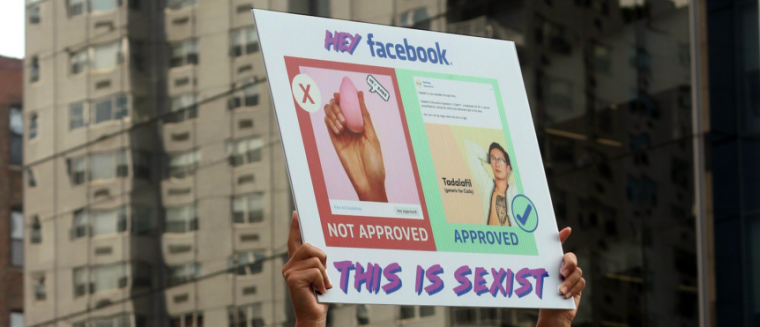Sex tech companies protest for the right to advertise—online or in the subway

Enlarge (credit: Dame / Unbound)
If you use Facebook heavily, it might come as a surprise that the platform says it prohibits adult content in ads. With everything from a constant stream of "boosted" posts from fitness models to erectile dysfunction ads and "how to initiate sex" ads aimed at brainwashing your wife showing up in timelines, this seems like a weird flex. But Facebook-along with other companies and organizations, like the NYC MTA-does have such a policy. Unfortunately, enforcement of this kind of policy tends to be wink-wink nudge-nudge for ads and services targeting straight male customers, but it's often enforced sternly by-the-book for everyone else.

This is Facebook's stated policy on adult content in advertisements. (credit: Facebook)
Facebook's policy goes on to provide example images of prohibited content, which revolve in theory around nudity, "implied nudity," and excessive skin/cleavage or focus on a particular body part "even if not explicitly sexual." The problem is not so much with the policy as its uneven enforcement. Ads which clearly violate the stated policy-including but not limited to underwear companies or fitness models with tightly-cropped and suggestive poses, lots of skin, etc-routinely make it through, while ads for female-oriented sexual wellness products or educational posts, seemingly no matter how restrained, are stopped cold. So some companies in the sex tech area have now decided not to take such policy implementation lying down.

Facebook disapproved this innocuous ad for a Dame handheld vibrator. [credit: Dame ]
Two woman-owned sexual wellness companies, Unbound and Dame Products, have started a campaign to address this discriminatory policy enforcement. The campaign's website, approvednotapproved, encourages visitors to play a maddening guessing game in which they're shown advertisements and asked to guess whether those ads were allowed. For now, the campaign mostly targets Facebook, Instagram, and the New York MTA (aka, metro or subway ads).
Read 8 remaining paragraphs | Comments